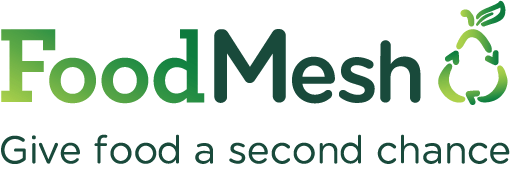10 Dec Turning surplus into piggy food
At Yarrow Ecovillage Community Farm, sustainability and sharing go hand-in-hand. Meg Jordan, a small-scale farmer within this vibrant community, shares the farm’s journey in using FoodMesh to divert surplus food from compost to a local pig farmer, and how this simple act has made a significant impact on both reducing food waste and building community.
Nestled in the Fraser Valley’s fertile farmland near Chilliwack, Yarrow Ecovillage Community Farm brings together hobby farmers, regenerative growers, and passionate stewards of the land. With 20 acres of certified organic land and 13 different farm entities, the farm thrives on diversity.
However, like many farms, there are times when not all produce can be sold or consumed. Apples are too buggy, zucchinis grow too large, and even the heartiest squashes get too soft or covered in critter marks for human consumption.
This is where FoodMesh stepped in. Meg recalls receiving an email from FoodMesh about their food recovery services, a program that connects surplus food to those who can use it—whether for people or, in this case, animals. “I love the matching bit,” she says, describing how FoodMesh made it easy to connect the community farms’ surplus apples, squash, and other produce with a local pig farmer. “I was delighted to find out that this was happening. It was seamless.”
What started as a one-off solution for worm-ridden apples quickly became a regular event. Every Monday became “Piggy Pickup Day” at the farm, with farmers leaving their excess or unsellable produce in a designated spot for a local hobby farmer, Michelle, to collect for her pigs. “It was about half a pickup truck bed each week,” Meg recalls. From rotten apples to oversized zucchinis, no surplus was wasted.
“I love the matching bit. It was seamless!”
Meg Jordan, Yarrow Ecovillage Community Farm
This partnership was not just practical but brought the farmers joy, knowing their hard-earned produce didn’t end up in the compost but went on to nourish animals. “I remember sorting the apples, and Michelle said, ‘They love them rotten!’ It felt great to know that even what we couldn’t use could still have a purpose.”
Yarrow Ecovillage Community Farm also had the chance to donate surplus squash, pumpkins, hazelnuts, kale and potatoes for human consumption through FoodMesh’s network, specifically to the Kurdish Canadian Society. “It was really cool to learn about the amazing work they do, serving over 200 families in the Chilliwack and many more in the Lower Mainland.” While coordinating these donations took a little more effort due to the need for precise timing, Meg hopes to expand the farm’s contributions next season to regularly donate to both animals and people.

Meg encourages other farmers to give food recovery a try, especially those who may not realize the potential of their surplus. “There’s such abundance when you farm, and it’s great to share it. If you have more than enough, why not see it go to good use?”
Thanks to FoodMesh, farms like Yarrow Ecovillage Community Farm are turning excess into opportunity, helping feed both animals and people while reducing waste. The process is easy, and the benefits are profound—for the community, the environment, and the farmers themselves.
So, if you’re a farmer sitting on a mountain of produce you can’t sell or eat, consider following Yarrow Ecovillage Community Farm’s lead. FoodMesh will connect you with the right people, or pigs, to make sure nothing goes to waste.

How can you get involved?
If you’re a grower with surplus food, or if you are in need of donated food, join the FoodMesh network to get started. It’s free, simple, and one small step toward making our food system more sustainable.


